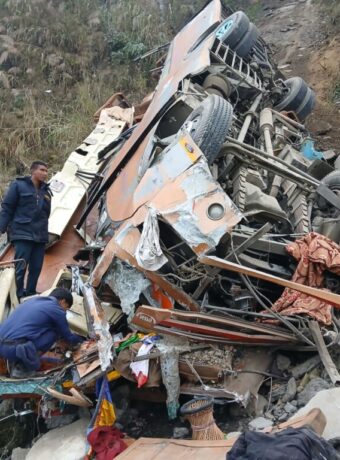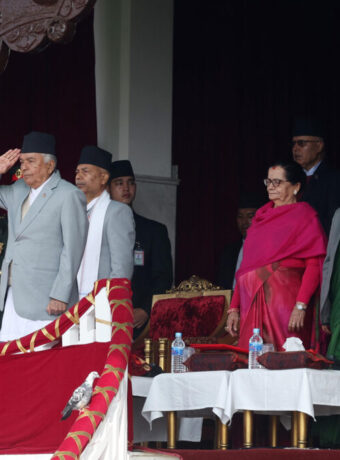NADA Auto Dialogue 2025: Transforming Mobility & Automotive Innovation in Nepal

Kathmandu, Nepal – The first-ever NADA Auto Dialogue promises to reshape the way we view the automobile industry in Nepal. This pivotal event addressed the history, foresight, and transformation of the automobile sector in the country, focusing on the critical shift from viewing vehicles as luxury to recognizing them as essential components for “Revolutionizing the Perception of Mobility in Nepal”, The event was graced by the Honourable Finance Minister, Mr. Bishnu Paudel, as the Chief Guest, and featured a distinguished panel comprising experts from various sectors. Notably among them were Mr. Keshav Kumar Sharma, Secretary at the Ministry of Physical Infrastructure and Transport; Prof. Dr. Shiva Raj Adhikari, Vice-Chairman of the National Planning Commission (NPC); Mr. GhanShyam Upadhyaya, Secretary of Finance Ministry and Representative from Country Director of Nepal from ADB, they were joined by several other esteemed panelists whose contributions were equally valuable.
Key Topics Discussed:
1. 50 Years of Progress & the Road Ahead
A look back at how Nepal’s auto industry transitioned from fuel-powered to electric vehicles, highlighting important achievements and changes in consumer preferences. The event also emphasized how policy inconsistency has hampered progress and why a consistent, long-term roadmap is critical for future prosperity. Recent departure pertinent to loan-to-value (LTV) ratios was raised as these kinds of sudden policy departure sets a dangerous precedent in the growth of the automobile sector in Nepal
2. Passenger, a Utility not just Luxury
Mobility is a necessity, not a luxury. The discussion focused on making transportation more accessible across Nepal, especially for middle and lower-income groups. Sessions explored how long-term, reliable policies were vital for expanding infrastructure, encouraging local production, and making financing more consumer-friendly. Discussions also explored how better infrastructure, financing options, and localized production can support this shift.
3. Sustainability Mobility for Economic Development
This dialogue also explored the critical role of sustainable mobility in driving economic development in Nepal. The paper emphasizes the need for eco-friendly, inclusive, and efficient transportation solutions, such as electric mobility. By aligning mobility initiatives with environmental goals and economic strategies, Nepal will increase the domestic consumption of green energy and reduced the dependency on the import. The panelist put forward some suggestion and recommendations to integrate sustainable mobility into national development planning. Industrialization must occur at all levels of the value chain, not just in assembly or distribution. The dialogue emphasized the need for backward integration, including the development of local component manufacturing, supply chain networks, and skilled workforce pipelines. This layered industrial growth is vital for building a self-sustaining automotive ecosystem in Nepal.
4. The Future of Mobility: Vision 2050
The future of automated cars, smart mobility solutions, and sustainable energy technology tailored to Nepal’s unique topography was discussed. Alternative Energy Vehicles, in particular, provide a pathway to cleaner air, lower carbon emissions, and less reliance on fossil fuels. However, making this vision a reality requires strong and long-term government policies that stimulate clean technology and maintain consistent policy direction over time.
Importance of the Dialogue: Why It Matters
The NADA Auto Dialogue is an important platform for influencing Nepal’s perspective on the automobile sector. For far too long, cars have been viewed as a luxury for the wealthy, but this discussion reframes mobility as a fundamental right tied to economic opportunity, job creation, and national prosperity
Conclusion:
This dialogue represents an important point in Nepal’s auto sector. With the right combination of supportive policies, appealing financing options (such as practical LTV models), Nepal has the potential to transition from a vehicle importer to a hub of eco-conscious, innovative, and self-sufficient automotive solutions. Nepal has the potential to transform into a resilient, accessible, and forward-looking mobility economy.



